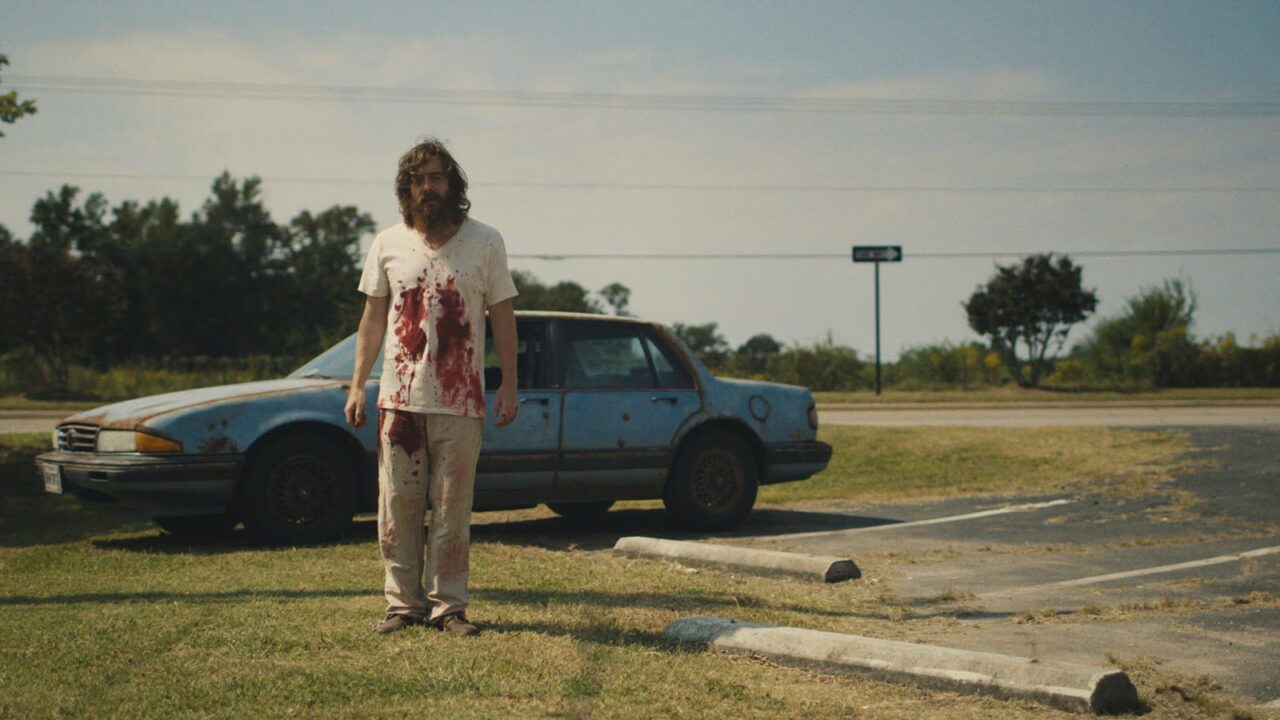Coming off of its buzzy premiere and run from this year’s Cannes Film Festival, Blue Ruin is making its U.S. debut at the 2013 AFI Film Festival, playing in the American Independent section of the festival.
The film’s director, Jeremy Saulnier (Murder Party), is also credited with writing and cinematography, which resonates in the film’s tightly woven and focused vision.
Ruin tells the story of sadly Dwight (cast perfectly in Macon Blair), seen at first as inconsequential and homeless, until he learns that the man convicted of his parents’ slaying has just been released from prison, shifting him immediately into fourth gear for plans of claiming personal justice. What spurns is a revenge tale of feuding families, spun together with its slow-burning tone, intelligently devised stakes, healthy doses of relieving humor, and low-budget film-making resourcefulness.
Ruin, as stated by its director, drew influence from No Country For Old Men, noticeable in its mostly deadpan tone, and similarly strung as a procedural thriller.
Set in the director’s Virginian hometown, Saulnier accomplishes the difficult task of creating an expansive world to set the familial drama in. As writer and cinematographer, the production benefits from its elaborate camerawork and changing of setups, making the camera feel like an active player in this odd-ball shoot-em-up. Ruin, as stated by its director, drew influence from No Country For Old Men, noticeable in its mostly deadpan tone, and similarly strung as a procedural thriller. Though where Country succeeded by the Coen Bros.’ pure cinematic power, able to elicit emotions of fear or suspense by inferring, or subtext alone, Ruin falls-just-this-side-of-short-of drawing the audience into its self-imposed sense of downward spiral hopelessness. Yet it is to the film’s utmost credit that it still fills every frame with aesthetically driven imagery (the shades of blue, whether of the jalopy Dwight drives, blue shadows off the television screen, or blue skies of the final act’s storm, are prevalent throughout).
Further, and very refreshingly, tension-filled moments that might typically play to an explosive tipping point are deflated with perfectly executed moments of humor. Upon an emotional moment shared by Dwight and his estranged sister Sam (Amy Hargreaves) in a diner, an arrestingly tense moment pops by an interrupting stranger’s asking for their table’s ketchup. Like this scene, the film is an entertaining series of side steps, capped with moments of appropriate gross-outs and laughs, making for much more than an enjoyable festival submission. With its upcoming widespread release and distribution from The Weinstein Company, Ruin should find success for the director, star, and film, as a further presence of strength in the voice of modern-day American independent film.
Ryan Rojas
Ryan is the editorial manager of Cinemacy, which he co-runs with his older sister, Morgan. Ryan is a member of the Hollywood Critics Association. Ryan's favorite films include 2001: A Space Odyssey, The Social Network, and The Master.

